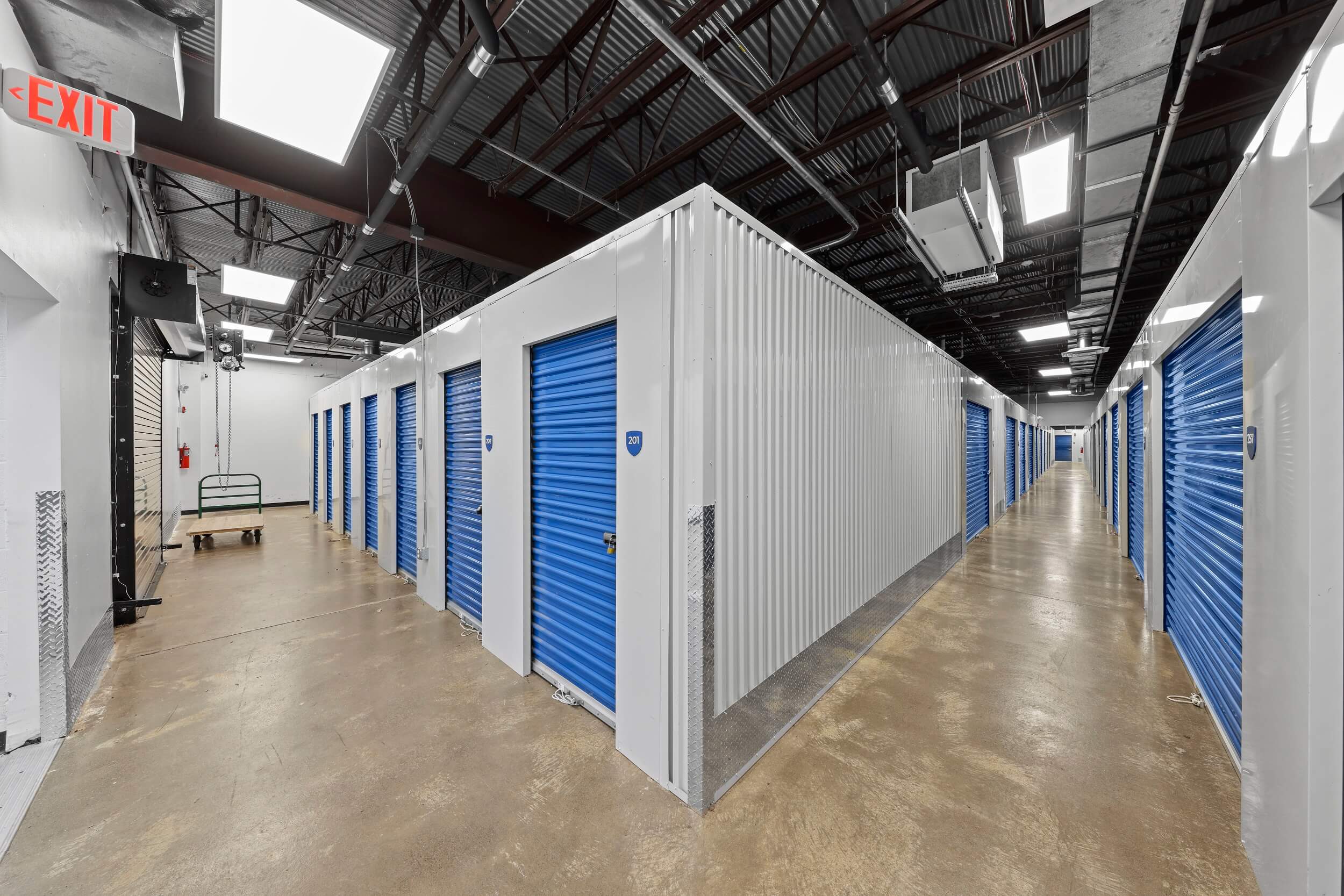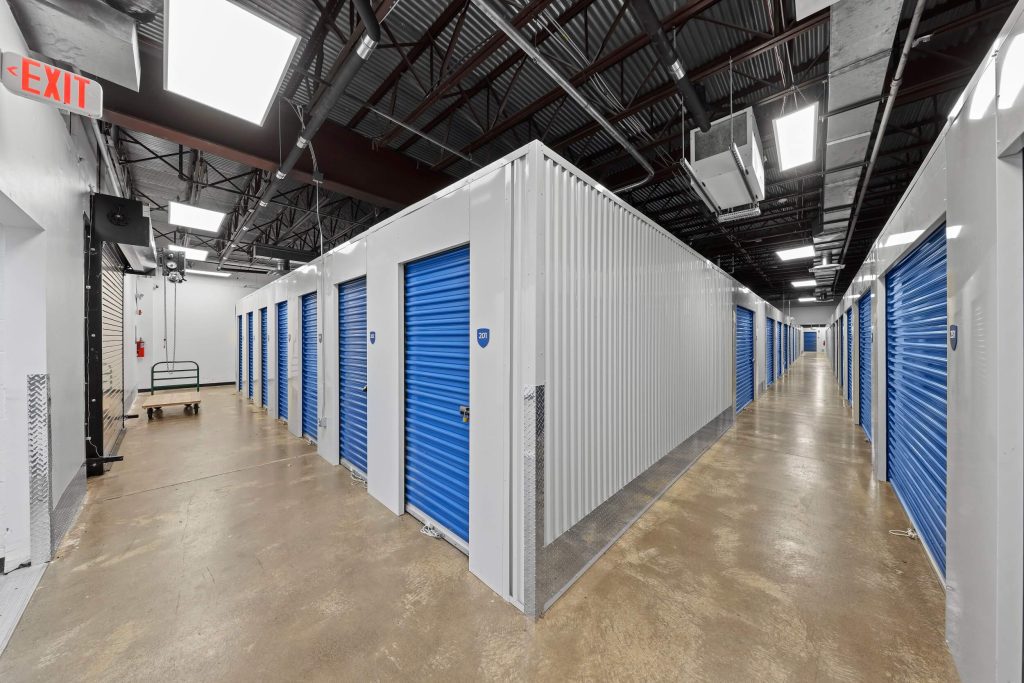
Why Temperature Control Matters: Protecting Your Valuables from Extreme Weather
Whether you’re new to the self-storage world or a seasoned user, understanding the nuances of storage facilities can make a huge difference in preserving the quality and lifespan of your stored items. The weather, particularly in states like Pennsylvania and Ohio, can exhibit extremes – from sweltering summers to icy winters. As such, it becomes pivotal to choose a storage solution that’s adept at combating these varying conditions. Enter temperature-controlled storage units, an innovation designed to shield your valuables from the whims of Mother Nature. In this blog, we at Defender Self Storage aim to shed light on the profound importance of such units and how they serve as the first line of defense against extreme weather patterns.
The Impact of Fluctuating Temperatures on Various Items
Temperature fluctuations, often driven by seasonal changes or sporadic weather events, can have dramatic impacts on various items. Here’s a closer look at how these shifts can affect different types of belongings:
Wooden Furniture: Wood is incredibly sensitive to changes in temperature and humidity. When exposed to frequent changes, wood can expand and contract, leading to warping, splitting, or even cracking. Antique wooden furniture, in particular, requires stable conditions to maintain its value and structural integrity.
Fabrics and Clothing: Extreme temperatures can cause some fabrics to become brittle, especially if subjected to prolonged cold. Additionally, humidity can invite mold and mildew, which can deteriorate clothing, upholstery, and other fabric-based items.
Electronics: Fluctuating temperatures can cause condensation to form inside electronic devices. This moisture can lead to short-circuiting, corroded internal components, or irreparable damage to the device.
Books and Paper: Paper is another material highly sensitive to temperature and moisture changes. Such fluctuations can cause pages to warp, ink to run, or mold to develop, compromising the structure and readability of the document.
Art Supplies: Artists who store supplies like paints, brushes, and canvases need to be especially wary. Extreme temperatures can cause certain paints to separate or harden and canvases to become slack or too taut.
Metal Items: Though metals are robust, they’re not entirely immune to temperature shifts. Extreme cold can make some metals brittle, while humidity combined with warmer temperatures can induce rust, tarnishing, or corrosion.
Defender Self Storage understands the science behind these reactions and has established temperature-controlled units to counteract the detrimental effects of fluctuating conditions. Whether you’re storing cherished memories, valuable antiques, or essential business items, knowing the impacts of temperature can guide you in making the best decisions for their preservation.
The Science Behind Temperature-Controlled Storage
Understanding the basics of temperature-controlled storage involves diving a bit into the science of how materials respond to varying environments. Let’s demystify the concepts that make these units essential for so many items:
Thermal Expansion and Contraction: Most materials will expand when heated and contract when cooled. This continuous cycle of expansion and contraction can stress the molecular structures of items, leading to physical deformation or degradation over time.
Relative Humidity and Moisture: Relative humidity denotes the amount of moisture present in the air relative to the maximum amount it could hold at that temperature. When the temperature inside a storage unit drops, especially during colder months, the relative humidity can increase, causing condensation. Temperature-controlled units manage this by ensuring a consistent environment, reducing the risk of moisture build-up.
The Goldilocks Zone: Just as there’s an optimal range of temperatures where life can exist on planets (often referred to as the Goldilocks Zone), there’s an optimal temperature range for storing many items – typically between 55°F and 85°F. These limits help prevent freezing, overheating, and excessive humidity.
Air Circulation: It’s not just about controlling temperature and humidity; effective air circulation also plays a pivotal role. Proper circulation ensures that the controlled environment remains consistent throughout the unit, preventing pockets of damp or excessively dry air which can be damaging.
Chemical Stability: Many items, from photographic film to certain types of chemicals, undergo slow chemical reactions over time. These reactions can speed up at higher temperatures, leading to faster degradation. By maintaining a stable temperature, these units help preserve the chemical integrity of such items.
Understanding these principles underscores the meticulous care and attention Defender Self Storage places in safeguarding your valuables. Our temperature-controlled facilities are designed based on these scientific principles, ensuring that what you store remains in pristine condition for the long haul.
Additional Protective Measures Within Temperature-Controlled Units
Even with the substantial defense offered by temperature-controlled storage, implementing supplementary protective strategies within these units can further safeguard your precious items.
Utilizing Protective Coverings: Even within a controlled climate, items can benefit from the use of protective coverings. Furniture covers, plastic containers, and fabric shrouds can shield items from dust, potential pests, and any unforeseen issues, offering an extra layer of safety.
Strategic Placement: Organize items thoughtfully within the unit. Ensure that fragile or particularly valuable items are stored securely and aren’t subject to accidental damage during visits to the unit. Making use of shelving and creating clear walkways ensures easier access and minimizes risk.
Employing Desiccants: Although temperature control manages humidity to a great extent, using desiccants (materials that induce or sustain a state of dryness in its vicinity) within the storage unit can provide additional protection against potential moisture, ensuring an even drier environment for your belongings.
Investing in Insurance: Opting for storage insurance provides a financial safety net for your stored items. Despite the premium conditions of temperature-controlled storage, it’s wise to be prepared for unforeseen circumstances like natural disasters.
Regular Checks: Periodic visits to your storage unit to inspect the condition of your items also serve as a protective measure. This practice ensures that if any issue does arise, it’s caught and addressed promptly, mitigating any potential damage.
This approach, alongside the steadfast consistency of temperature-controlled storage, creates a fortress of protection around your valuables, ensuring they remain in optimal condition, ready for use, or admiration whenever you wish to retrieve them. Combining the stability of climate control with these additional safeguards makes for a robust, dependable solution for maintaining the integrity of a diverse array of items, from delicate antiques to vital documents.
The Importance of Temperature Control
As we’ve journeyed through the intricacies of temperature-controlled storage, it becomes clear that this isn’t merely a luxury but a necessity for many items. Fluctuating temperatures and uncontrolled humidity can wreak havoc on sensitive materials, potentially resulting in irreversible damage. Defender Self Storage, with our steadfast commitment to providing top-tier storage solutions in PA and OH, ensures that your valuables get the protection they deserve. Because, after all, it’s not just about storing items – it’s about preserving their essence, their memories, and their worth. Choose temperature control; choose peace of mind.
Penn Hills, PA · Lorain, OH
Follow our Facebook page for more self storage tips!

Tim Glasow
About the Author: Tim is the SEO Manager at Storage Asset Management in York, PA. He is a self-storage industry specialist who has written about everything from storage advice and helpful resources to industry trends. In his free time, Tim enjoys sampling craft beer and exploring the local music scene.


